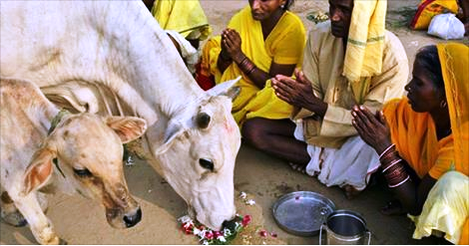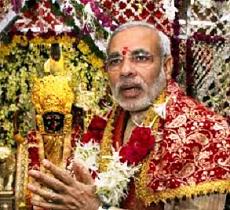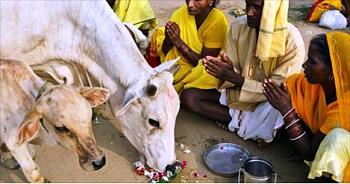India – Pakistan: Apocalypse of nuclear war
Tom O'Neill in the National Geographic issue of November, 2002 warned of a threat of nuclear war that persistently grips India and Pakistan. Quoting diplomatic and military specialists added that the formidable geography makes Indian sub-continent a hotbed of volatile politics wrapped in historical animosity. The fiery rhetoric by political leaders keeps both nations on a war alert and the diplomatic interventions from the United States, Russia and other countries to ease tensions does not seem to have a huge effect on the festering dispute of occupied Kashmir. O´Neill further says "Worst-case war simulations predict there could be 9 million to 30 million deaths."
A doomsday scenario depicted thirteen years back seemingly ignored, as many believe, allowed space to accumulate weapons of mass destruction in the region or internationally making our planet perilous possibly leading to Armageddon. India managed to gain time by showing stubborn stance insisting on bilateral discussions to solve all issues including Kashmir with Pakistan. India´s Hindu nationalist Prime Minister Narendra Modi´s attitude hardened towards Kashmir starting with land grabbing plan to settle Hindu population, as believed, to change the demographic character of Muslim majority Kashmir.
Protests demanding independence from India continue unabated following scuffles between people of Kashmir and Indian armed forces. Killings, disappearances, extra-judicial killings, rapes and razing of properties a continuous process do not seem to end creating restlessness and antagonism. BBC reports (September 25, 2015) that 12 people are injured in fresh flare up; army using plastic bullets, teargas shells, baton charges to quell uprising as people defy the ban imposed on cow slaughter by Indian government as the slaughter touches Hindu sensitivities. Mr Modi´s government started off its virulent attack by orchestrating tens of thousands of Hindu devotees to visit a re-discovered frozen glacier on high peak mountain in Kashmir named as Amarnath supposed to resemble phallic deity.
In an eyeball to eyeball contact the recent escalation on borders has left scores dead and injured; each side blaming the other for unprovoked firing and shelling on houses along the ceasefire line forcing inhabitants to flee to safer areas. While Germany in a statement issued said that Kashmir can´t be avoided in India – Pakistan talks; Toronto Star in an article published August 28, 2015 reported that "Tension has mounted between the two countries after talks between their national security advisers were called off because of disagreement related to Kashmir." The Star quoting Pakistani Army Chief General Raheel Shareef saying "India has blatantly violated the ceasefire, terrorized Pakistani civilians and disregarded international conventions and norms. In a statement, he called the Indian attack, highly unprofessional, unethical, irresponsible and cowardly."
India in a desperate bid pushes its campaign to seek permanent membership of United Nations Security Council. Historically India used erstwhile Soviet Union´s veto power to thwart any attempt to implement UN Resolution on Kashmir at least for four decades and later managed to hoodwink international community to put Kashmir on a back burner. But in the latest development Russia made it clear that none of the current members’ powers would change, saying: "The prerogatives of the current Permanent Members of the Security Council, including the use of veto, should remain intact under any variant of the council reform."
Pakistan, like India, now recognized as a nuclear power has assumed international importance and as believed has an important role to play on the global level. India is not comfortable with such an equation and finds Pakistan an impediment to fulfil its agendas and ambitions. The recent political developments between India and Pakistan are a backdrop of Indian belligerent machinations to create political upheaval in Pakistan´s Baluchistan, Karachi and elsewhere. The terrorism infested cities of Pakistan believed to be a direct result of meddling by Indian backing and financing admitted openly by Prime Minister Modi and Indian intelligence agencies.
Kashmir, continuously simmering and suffering under Indian brutal military junta armed to teeth for over six decades, seems to prepare itself for a long battle and finish it to achieve the cherished independence. Indian army, on the other hand, faces exhaustion and fatigue as it has become a common practice for Indian soldiers to commit suicide and psychological pressures result in indiscriminate firing killing anyone spotted around. OneIndia.com reported (September 23, 2015) quoting Indian army sources that the time for withdrawal from Kashmir is not right as the gains made by forces on the ground may be lost. "The time is not right for us to pull out."
India and Pakistan yet again are battling it out at United Nations to outwit the other especially with regard to Kashmir. Prime Minister Nawaz Sharif is under tremendous pressure to raise Kashmir question at UN and press for international community´s support to solve the long stand problem, a nuclear flashpoint. India is equally expected to build support for its argument that Kashmir is its internal problem and third party intervention, as it claims, is out of question. Now it remains to be seen what role international community will play under the newly developed political environment. For India the odds are against as the uprising in Kashmir does not show any let up and the opinion within India gains momentum to give Kashmir what it deserves.
Due to the insight into political philosophy of Indian sub-continent and expertise in investigative journalism, Tom O´Neill endeavoured to impress "Any solution to the Kashmir dispute will likely entail more autonomy for besieged inhabitants, but for now the region smolders, a fuse that could spark the planet’s first war between nuclear armed adversaries."
Comments
There are 0 comments on this post

















